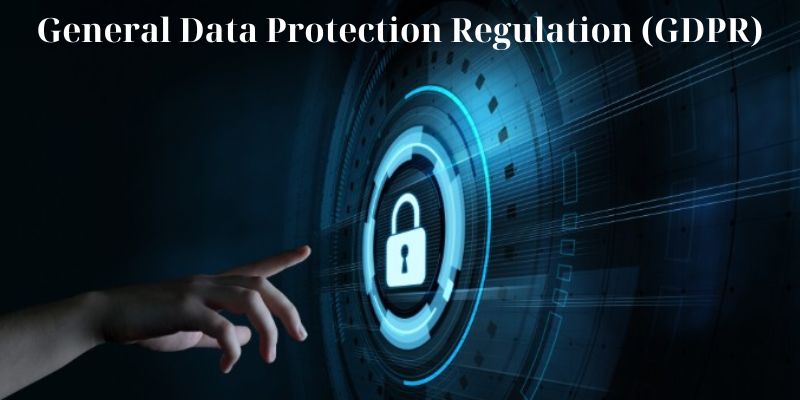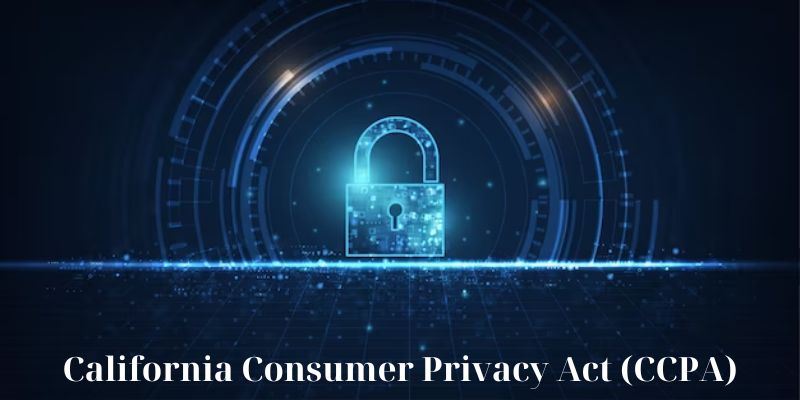Heightened data security compliance requirements are coming. However, with so many changing and sector-specific laws and no single federal statute, it can be difficult to determine what regulations apply to your business and which ones do not.
This is particularly true if you’re looking to cut back on your legal expenses and, like 41% of small firms, you don’t currently have a well-rounded data management strategy in place. However, regardless of the size of your business, the longer you wait to establish internal guidelines for data protection, the higher the risk of noncompliance.
If you want to prevent fines and reputational harm, you must be aware of the data compliance standards to adhere to. Your business might base its security practices on a blueprint provided by the existing data privacy legislation. In this article, tapchiai.net will discuss 5 best data security compliance requirements.
1. General Data Protection Regulation (GDPR) – Data Security Compliance Requirements
The widely recognized European Union (EU) response to privacy issues is the GDPR. Customers now have control over their own personal data thanks to this law, which became effective in 2018.
Even if all of your clients are headquartered in the United States, it’s a good idea to become familiar with the GDPR’s rules since it only applies to businesses who serve EU individuals. Since the GDPR is the broadest regulation available, other countries may use it as a model for their own data protection regulations, which could apply to your business.

Customers’ and employees’ personally identifiable information is protected under the GDPR. This broad category can encompass everything that could possibly be used to identify a person, such as:
- Names
- Biometric information such as facial recognition and fingerprints
- Passport and tax identification numbers as well as national identity numbers are examples of identifying numbers.
- IP addresses
- Locations
- Telephone numbers
An incremental scale of fines is used as punishment for GDPR infringement. Up to 4% of the company’s global annual turnover or 20 million euros can be fined for serious or blatant infractions, and you’ll be responsible for paying the higher amount.
2. HIPAA Privacy Rule, Health Insurance Portability and Accountability Act – Data Security Compliance Requirements
The HIPAA Privacy Rule is a federal law in the United States that guards the personal information of Americans, namely medical records and personal health information. It most importantly outlines the obligations for healthcare professionals and organizations who run health plans to protect patient information.
Given the stakes, that is an important task: It is possible to purchase bogus medications and submit false claims to medical insurance using healthcare information. It is also jam-packed with private data that can be used for identity theft, including names, social security numbers, and addresses. That makes for a very alluring situation for criminals, which may help to explain why the number of healthcare data breaches nearly doubled between 2018 and 2021.
The Privacy Rule under HIPAA similarly uses a graduated approach for annual penalties. The maximum fine that can be imposed is $1.5 million per year for each type of violation, but that level of punishment is only applied to businesses that intentionally disregard HIPAA regulations by failing to address violations and privacy process issues.
3. The Gramm-Leach-Bliley Act (GLB) – Data Security Compliance Requirements
The GLB Act requires financial institutions to take steps to secure their data management systems due to the sensitive nature of the information they hold about their customers. This is similar to how HIPAA places additional obligation on healthcare organizations to protect their patients’ sensitive health information.
However, this federal data protection statute covers financial institutions and financial service providers in the United States, including banks, lenders, brokerage houses, debt collectors, and investment advisors, in place of healthcare data.

Hackers are drawn to private financial information because it may be used to start fictitious credit accounts, apply for loans, and engage in other types of identity theft. In fact, 86% of data breaches have a financial gain as their primary motivation, making this the most frequent cause for malicious actors to attempt to obtain personal data.
The GLB Act carries criminal penalties for willful offenses as well as fines for noncompliance.
4. Federal Trade Commission (FTC)
According to the FTC Act, organizations that engage in “unfair or deceptive acts or practices” are subject to prosecution. This includes apps or websites that provide false information concerning security and privacy. Regardless of the industry, this rule applies to all U.S. businesses and guarantees a broad variety of consumer rights that go far beyond privacy.
Companies that violate the FTC’s rules are frequently penalized. And unless the issue is resolved, it keeps levying those fees.
5. California Consumer Privacy Act (CCPA)
Personal data rights are guaranteed by the CCPA, but only for California residents. Residents have the following rights under the CCPA (and the California Privacy Rights Act, which will extend the rule further when it takes effect in 2023):
- Be aware of the data a firm collects and how it is used.
- Delete the information that has been gathered and choose whether or not to consent
- To the sale of their data.
- Non-discrimination
- Rectify false records
- Limit how their information is used
- For a data breach, sue the firm

The California Attorney General often handles CCPA infractions. The state may impose civil penalties for noncompliance in addition to fines that are assessed according to a tiered system. Residents can also directly sue a firm if personal information is compromised in a data breach, albeit those instances are uncommon.
Businesses outside of California may decide to adhere to CCPA rules for the same reasons they could adopt GDPR requirements: This measure is probably going to serve as a model for other jurisdictions looking to preserve the privacy of their citizens.







